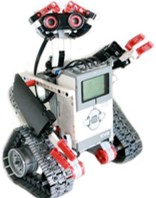As redundant or unsuitable learning material unnecessarily demands learners’ cognitive resources, they can benefit from aligned instructional support, e.g., due to increasing expertise or states of frustration. When examining the current educational literature on tailored instructional support, we can notice that structured and formalized scaffolding procedures are still lacking. We address this gap from several angles.
Affect-adaptive tutoring systems (2021 – present)
Affect-adaptive tutoring systems are capable of detecting and adequately responding to learners’ emotional states by adapting the learning experience, e.g., by providing additional support to mitigate frustration, or accelerate lesson plans to avoid boredom. Accounting for affective responses during training for safety-critical situations may help develop coping strategies and improve resilience. Current research emerging from a dissertation in the SimTech Graduate Academy focuses on developing mechanisms of effective alignment and paves the way for advances in affective computing.

Guidance fading in a robot construction task (2017 – 2018)
A first step towards a more systematic guidance fading approach emerged from a project on instructional variations in a robot construction task. The task involved building a LEGO mindstorms robot according to a given instruction. Based on a Hierarchical Task Analysis (HTA), we reduced the level of detail in the provided instructions in repeated building steps. The obtained evidence suggests to further explore this approach in alternative task settings.
Related publications
- Koch, N., Kapfenstein, A.-K., Meißner, N., & Wirzberger, M. (2024). Enhanced code comprehension: Individualized learning of code tracing with the feedback buddy. In DELFI 2024.
- Schmitz-Hübsch, A., Gruber, M. E., Diaz, Y., Wirzberger, M., & Hancock, P. A. (2024). Towards enhanced performance: An integrated framework of emotional valence, arousal, and task demand. Ergonomics. https://doi.org/10.1080/00140139.2024.2370440
- Schmitz-Hübsch, A., Becker, R., & Wirzberger, M. (2023). Emotion-performance relationship in safety-critical human-machine systems. Computers in Human Behavior Reports, 100364. https://doi.org/10.1016/j.chbr.2023.100364
- Schmitz-Hübsch, A., Becker, R., & Wirzberger, M. (2023). Personality traits in the emotion-performance-relationship in intelligent tutoring systems. In R. A. Sottilare & J. Schwarz (Eds.) Adaptive Instructional Systems. HCII 2023. Lecture Notes in Computer Science (pp. 60–75). Springer. https://doi.org/10.1007/978-3-031-34735-1_5
- Schmitz-Hübsch, A., Stasch, S.-M., Becker, R., Fuchs, S., & Wirzberger, M. (2022). Affective response categories – Towards personalized reactions in affect-adaptive tutoring systems. Frontiers in Artificial Intelligence, 5, 873056. https://doi.org/10.3389/frai.2022.873056 [PDF]
- Esmaeili Bijarsari, S., Wirzberger, M., & Rey, G. D. (2018). Guidance or Setting? Exploring the learnability of computer-based instructions in a construction task. In J. Hartig, & H. Horz (Eds.), 51st Conference of the German Psychological Society. Abstracts (p. 509). Lengerich: Pabst Science Publishers.
- Esmaeili Bijarsari, S., Wirzberger, M., & Rey, G. D. (2018). Guidance or Setting? Exploring the learnability of computer-based instructions in a construction task. In A. C. Schütz, A. Schubö, D. Endres, & H. Lachnit (Eds.), Abstracts of the 60th Conference of Experimental Psychologists (p. 69). Lengerich: Pabst Science Publishers.
- Esmaeili Bijarsari, S., Wirzberger, M., & Rey, G. D. (2017). Lernförderliche Gestaltung computerbasierter Instruktionen zur Roboterkonstruktion [Enhancing the design of computer-based instructions in a robot construction task]. In M. Eibl, & M. Gaedke (Eds.), INFORMATIK 2017, Lecture Notes in Informatics (LNI) (pp. 2279-2286). Bonn: Gesellschaft für Informatik. https://doi.org/10.18420/in2017_228
